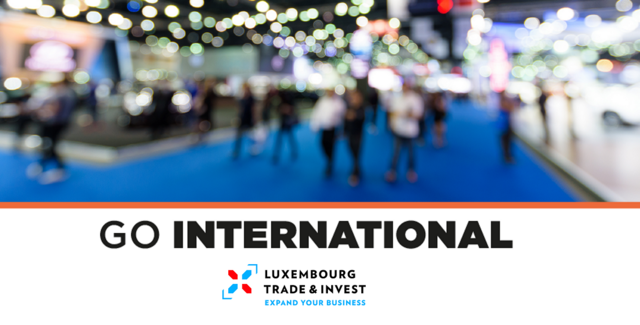
Kapitel
En 2025, comme en 2024, la croissance économique devrait conserver un niveau confortable, soutenue par le dynamisme des exportations (environ 25 % du PIB en 2023), en lien avec celui du secteur agricole et des industries extractives, mais aussi, par une consommation des ménages robuste ainsi que des dépenses d’investissement privées durablement élevées. La production et les exportations d’hydrocarbures (15,8 % des exportations en 2023) devraient bondir, à mesure que l’exploitation du champ offshore Baleine (consortium Eni-Petroci), dont les réserves sont estimées à 2,5 millions de barils de pétrole brut et 3 300 milliards de pieds cubes de gaz naturel, rejoindra son plein potentiel, prévu pour 2028. Dans le même temps, les mises en service récentes de plusieurs mines d’or, ainsi que la découverte d’importants gisements confortent les perspectives du secteur (12,8 % des exportations en 2023). Riche en ressources agricoles, la Côte d’Ivoire pourra également compter sur ses exportations de caoutchouc (11,2 % des exportations en 2023), de noix de cajou (6,9 %) ou encore de cacao (31,7 %), dont elle est la première productrice mondiale. Les résultats décevants de la campagne cacaotière 2023/2024, marqués par une diminution de la production (de l’ordre de 25 %) – à cause des conditions climatiques et de plusieurs maladies – ont concouru à l’envolée spectaculaire des cours mondiaux, responsable, en avril 2024, du relèvement de 50 % du prix bord champ fixé par le gouvernement, en charge de rémunérer les producteurs. Une bonne nouvelle qui, combinée à des perspectives plus clémentes pour la prochaine récolte, devrait permettre aux exportations de cacao de rebondir fortement en 2024/2025.
Pour soutenir le développement des infrastructures (réseau électrique, port et métro d’Abidjan, CHU d’Abobo, etc.) dans le cadre du Plan National de Développement (PND), les dépenses publiques d’investissement (6,8 % du PIB en 2023) resteront conséquentes en 2024/2025, épaulées par la coopération internationale. Plus encore, le secteur et les investissement privés (18,3 % du PIB en 2023) progresseront sur la période, consolidés par les efforts concrets du gouvernement pour améliorer l’environnement des affaires et promouvoir le développement des chaînes de valeur dans une quinzaine de secteurs (lutte contre la corruption, défense des droits de propriété, simplification du système de taxation des entreprises et des conditions de crédits pour les PME, etc.). Un développement accompagné par un probable assouplissement de la politique monétaire de la Banque Centrale des États d’Afrique de l’Ouest (BCEAO) – qui maintient son principal taux directeur à 3,5 % depuis décembre 2023 après plusieurs hausses de rang –, en réponse au ralentissement de la hausse des prix sur toute la période, grâce à l’assagissement des cours des produits de base. Dans ce contexte, la consommation des ménages (78 % du PIB en 2023), déjà confortée par les retombées économiques de la Coupe d’Afrique des Nations (CAN) début 2024 et les revenus tirés du cacao, continuera de croître et de porter la croissance ivoirienne.
Source : COFACE - Côte d'Ivoire
Kennzahlen
- Fläche
- 322,460 km2
- Bevölkerung
- 29,981,758 (2024)
- Regierungsform
- presidential republic
- Sprachen
- Français (officielle), et 60 dialectes dont le Dioula est le plus répandu
- BIP
- $202.119 billion (2024)
- Wachstumsrate
- 6.2% (2024)
- HDI
- 162
- Hauptstadt
- Yamoussoukro
Makroökonomische Indikatoren
IMF Statistics:
| Subject descriptor | 2021 | 2022 | 2023 | 2024 | 2025 |
|---|---|---|---|---|---|
|
Gross domestic product, constant prices Percent change (Units) |
7.062 |
6.218 |
6.200 |
6.500 |
6.400 |
|
Gross domestic product, current prices U.S. dollars (Billions) |
72.833 |
70.324 |
78.887 |
86.993 |
95.462 |
|
Gross domestic product per capita, current prices U.S. dollars (Units) |
2,478.224 |
2,326.334 |
2,537.065 |
2,719.971 |
2,901.813 |
|
Inflation, average consumer prices Percent change (Units) |
4.159 |
5.208 |
4.389 |
3.800 |
3.000 |
|
Volume of imports of goods and services Percent change (Units) |
7.753 |
5.347 |
7.258 |
7.112 |
8.527 |
|
Volume of exports of goods and services Percent change (Units) |
10.205 |
8.019 |
4.610 |
0.141 |
6.715 |
|
Unemployment rate Percent of total labor force (Units) |
|||||
|
Current account balance U.S. dollars (Billions) |
-2.874 |
-5.394 |
-6.335 |
-4.693 |
-1.205 |
|
Current account balance Percent of GDP (Units) |
-3.946 |
-7.670 |
-8.030 |
-5.394 |
-1.262 |
Luxemburg und das Land
Existing conventions and agreements
Non double taxation agreement
In order to promote international economic and financial relations in the interest of the Grand Duchy of Luxembourg, the Luxembourg government negotiates bilateral agreements for the avoidance of double taxation and prevent fiscal evasion with respect to Taxes on Income and on fortune with third countries.
None
Air Services agreement
None
Weitere Informationen
Foreign Trade
The Statec Foreign Trade statistics provide information on the trade of goods - by product and by country. This information is collected respectively through the INTRASTAT declaration and on the basis of customs documents.
You can see the statistics on the website of the Statec.
Contact points in Côte d'Ivoire
Luxembourg is represented by Ambassade du Royaume de Belgique à Abidjan
Honorary consul with juridiction over the Côte d'Ivoire:
Mr Maximilien LEMAIRE
01 BP 4301
Abidjan 01
Côte d'Ivoire
Tel: (+225) 0 576 50 50 50
E-Mail : abidjan@consul-hon.lu
Sources: Ministry of Foreign Affairs Luxembourg
Other Useful Links:
- The CIA World Factbook on Côte d'Ivoire
- La Côte d'Ivoire sur le site de l'AWEX
- Economic Freedom Index - Côte d'Ivoire




